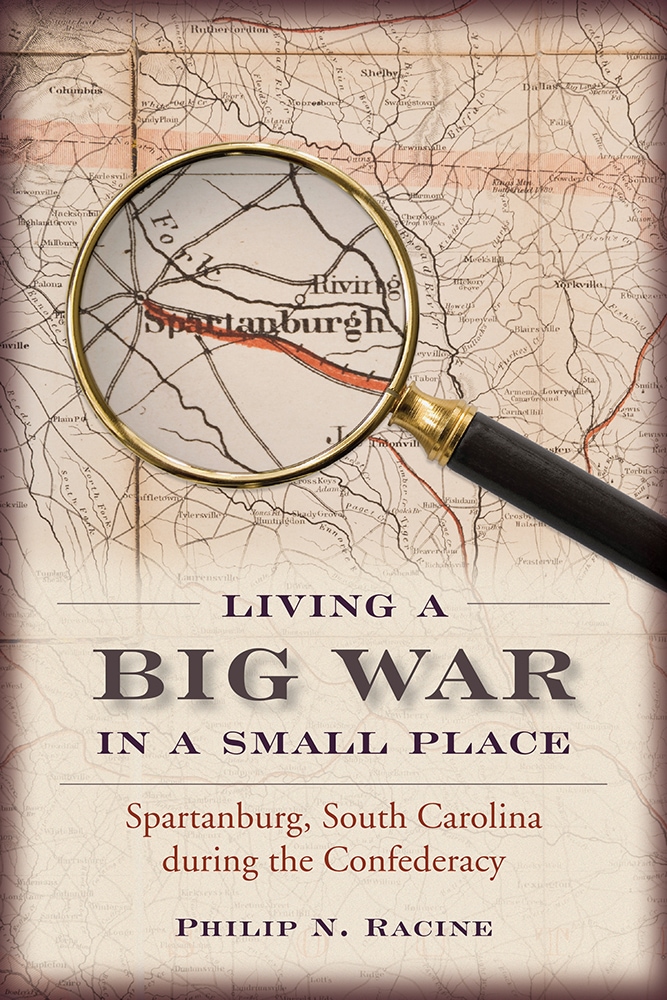Black History Month Sale: 40% off all books, plus FREE SHIPPING on all U.S. orders over $50 | Use code JBHM26

Size: 6 x 9
Pages: 136
Illustrations: 12 b&w halftones
Philip N. Racine
The inclusion of this book in the Open Carolina collection is made possible by the generous funding of
"Racine's work is a helpful addition to the growing number of studies of the Civil War at the micro level. It is also a useful pedagogical tool, as Racine deliberately uses his book as a treatment of the strengths and pitfalls of working with primary sources."—Paul Yandle, North Greenville University, West Virginia History
"Racine has made excellent use of his knowledge of this locale. He skillfully demonstrates how the experiences of one, small place can reflect the larger themes of a very big war."—Jacqueline Glass Campbell, Civil War Monitor
"Living a Big War in a Small Place is a well-written account that not only captures the plight of both the black and white population, but also offers some amazing cameos, especially the life of Emily Lyle Harris, who struggled to keep her large family in tact while her husband went off to war. This is a lively read and a perfect book to assign for classes covering the Carolina Upstate during the American Civil War."—Edmund L. Drago, professor of history, The College of Charleston, and author of Confederate Phoenix: Rebel Children and Their Families in South Carolina
"Living a Big War offers a fascinating, unflinching look at the toll the Civil War took on Spartanburg, clearly showing divisions that emerged and deftly employing stories of slaves, women, and other individuals to reveal the experiences of people on the home front."—Gaines M. Foster, dean, College of Humanities and Social Sciences, Louisiana State University, and author of Ghosts of the Confederacy: Defeat, the Lost Cause and the Emergence of the New South, 1865-1913
Copyright 2026
Website By Morweb.org